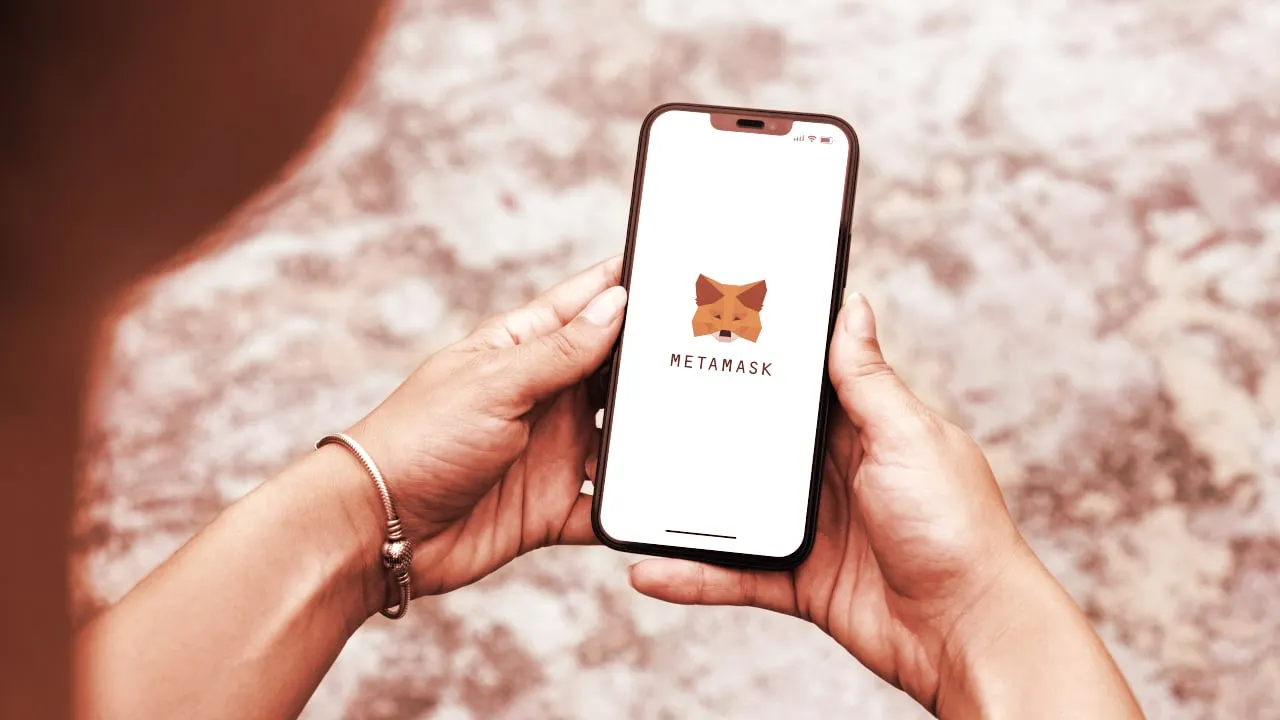MetaMask co-founder and ex-Apple employee Dan Finlay says he’s all in favor of the crypto industry ditching Apple’s App Store altogether, calling Apple’s 30% in-app purchase tax “an abuse of monopoly.”
“I'll absolutely stand in solidarity here,” Finlay wrote in response to the news that Coinbase’s iOS Wallet app had previously been blocked by Apple until it removed NFT transfer features.
Coinbase’s Wallet announced Thursday that its users would no longer be able to trade or transfer NFTs through its iOS app, arguing that even if it wanted to comply with the “Apple tax,” it would not be able to due to Apple not being integrated with blockchains like Ethereum.
“I assume [MetaMask] and every other wallet is next,” Finlay tweeted today. “I'm ready to dump the Apple ecosystem. The 30% tax is an abuse of monopoly.”
It’s unclear what this would mean for current users of the MetaMask iOS app. In emailed comments to Decrypt, Finlay said: “As of now, Metamask remains on the app store but we will closely monitor the situation in the coming weeks and months to ensure our users continue to have unfettered access to their crypto assets.”
Oh I'll absolutely stand in solidarity here, I assume MM and every other wallet is next. I'm ready to dump the Apple ecosystem. The 30% tax is an abuse of monopoly. @tim_cook has donned the Big Brother screen. https://t.co/tzcA0Ol658
— Dan Finlay 🦊💙 (@danfinlay) December 1, 2022
Finlay also elaborated on his tweets regarding his feelings about Apple's new policies. “We are disappointed to see the news that app stores are becoming strict gatekeepers, which is not just obstructing growth, but also an avenue for censorship," he said. "We believe as a community we should come together to find a workable solution, so that the end users can continue to have the freedom to transact and the technology can flourish.”
Finlay is far from the first crypto advocate to express disdain toward Apple’s policy. Epic Games CEO Tim Sweeney and Polygon Studios CEO Ryan Wyatt have voiced similar levels of disgust with the 30% in-app purchase tax.
As crypto companies try to build out features for their mobile applications to give users an alternative to browser-only experiences, many are hitting Apple’s tax roadblock and are being rejected or removed from the iOS App Store.
Such policies can feel arbitrary in an increasingly digital world. While companies like Amazon are allowed to sell physical goods in their applications without being subject to the tax, crypto companies like OpenSea or Coinbase are not allowed to sell digital goods without being subject to the tax. Digital art (when traded as an NFT) is taxed, while physical art is not.
Instagram, who recently launched in-app NFTs, will implement Apple’s 30% tax onto every NFT sale—a move that makes mobile purchases much less appealing to users.
In response to a previous request for comment, Apple told Decrypt that its guidelines apply equally to all who apply to be listed on its App Store.
It also pointed to section 3.1.1 of the App Store guidelines, which states that “Apps may not use their own mechanisms to unlock content or functionality, such as license keys, augmented reality markers, QR codes, cryptocurrencies and cryptocurrency wallets, etc.”
Apple’s guidelines state that apps are allowed to “use in-app purchase to sell and sell services related to non-fungible tokens (NFTs), such as minting, listing, and transferring,” but those will all be subject to the 30% tax.
Editor's note: This article was updated after publication to include comments from MetaMask's Dan Finlay.

